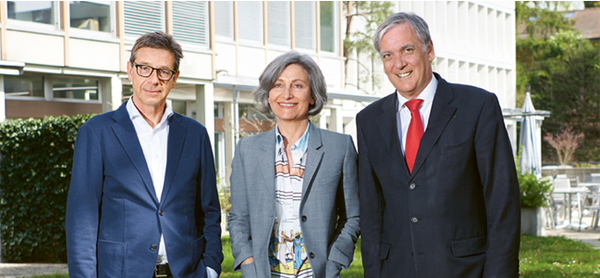Foreword
Transparency, quality and visibility
“I advise you to look for a chance to break away, to find a subject you can make your own. (…) Therein you have the best chance to become a leader and, as time passes, to gain growing freedom to set your own course.” This is the renowned biologist Edward O. Wilson’s advice in his recently published Letters to a Young Scientist.
Excellence, originality and independence – these are the sine qua non of research projects that aim to expand the frontiers of knowledge, offer young researchers promising career opportunities and produce results that are beneficial to society. With this in mind, the SNSF has started modifying its career funding schemes, a process that it plans to complete in the coming years. This will involve changes to existing funding schemes, the creation of new ones and the discontinuation of those that have achieved their goal.
If Switzerland is to maintain its leading position in international research, we need to support young researchers and create the conditions they need to be successful. This will also contribute to innovation and economic growth in the country. But the SNSF has also set clear requirements for both young and established researchers in an attempt to enhance the transparency, quality and visibility of scientific research.
Transparency: data collected in SNSF-funded research projects are being made publicly accessible. The principle of Open Research Data is a mini-revolution because many researchers do not publish their project data. But the SNSF and many other funders believe that public access to data is vital in making research results more reproducible and opening up new perspectives for science. After all, the data also belong to the taxpayer, who made it possible to collect them in the first place. As of October 2017, researchers supported by the SNSF will normally be required to submit a data management plan with their application. All relevant data generated in a project – or at least those used in publications – should be available to other scientists and to the public at large.
Quality: today’s frenetic publication activity must make way for a more qualitative approach – on the part of both researchers and evaluators. The SNSF is fully committed to the principles embodied in the San Francisco Declaration on Research Assessment (DORA). Applying these principles involves taking account of the value and impact of all research output. We are doing all we can to change mind-sets in this area.
Visibility: the times in which the public and the powers that be blindly trusted scientists and believed in basic research are over (was there ever such a time?). What good are scientific breakthroughs if their importance goes unnoticed or their very existence is contested? With its Scientific Image Competition and Agora funding scheme, the SNSF is encouraging researchers to pass on their passion for science by showcasing the results of their research.
We are all aware that transparency, quality and visibility will not make scientific research flawless or irreproachable. But they hold the key for the young researchers addressed by Edward O. Wilson, who want to make their mark by relentlessly pursuing their own research topic and, with a little luck, achieving results that will make a real difference.



